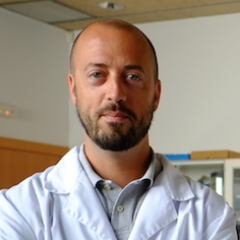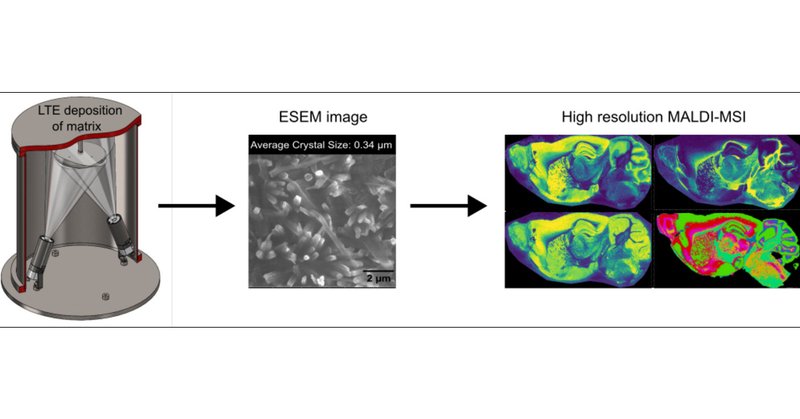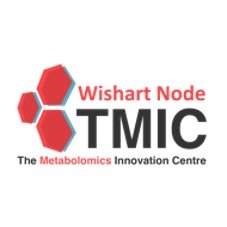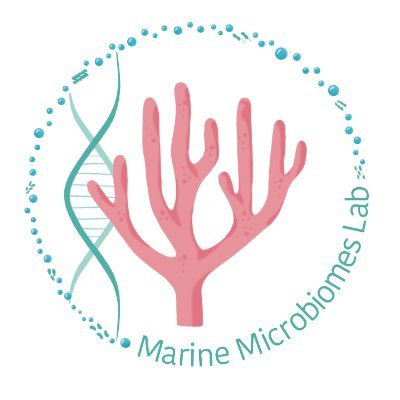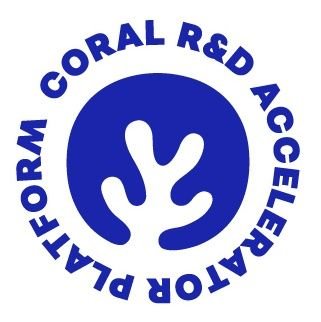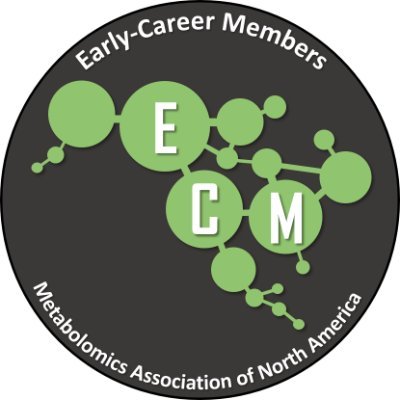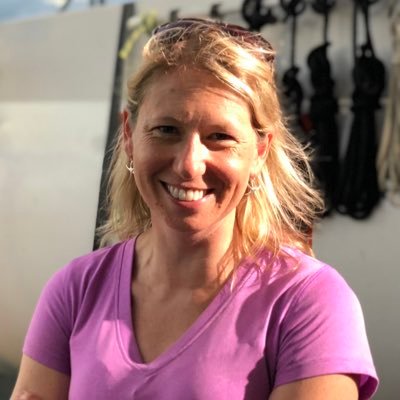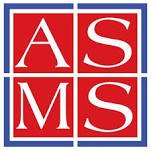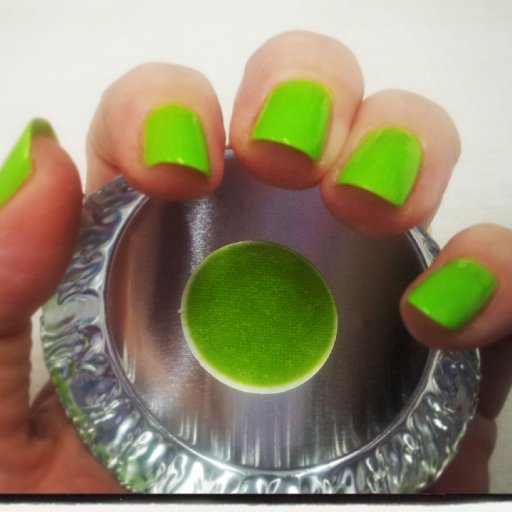
Brie M. Garcia, Ph.D (she/her)
@briemgarcia
Followers
473
Following
5K
Media
79
Statuses
878
Postdoctoral investigator @ WHOI | Ph.D. UGA ‘22 |Analytical chemist focused on applying mass spectrometry-based metabolomics to marine science 🐠
Falmouth, MA
Joined June 2019
We’re excited to share our latest work "Improving MALDI Mass Spectrometry Imaging Performance: Low-Temperature Thermal Evaporation for Controlled Matrix Deposition and Improved Image Quality" | Journal of the American Society for Mass Spectrometry https://t.co/osES2hkvFD 🧵👇
pubs.acs.org
The deposition of matrix compounds significantly influences the effectiveness of matrix-assisted laser desorption/ionization (MALDI) Mass Spectrometry Imaging (MSI) experiments, impacting sensitivi...
1
1
3
If you conduct tissue omics (Lipidomics, Metabolomics, Proteomics) and are always wondering how to normalize your samples, check our just published paper!
Evaluating sample normalization methods for MS-based multi-omics and the application to a neurodegenerative mouse model #OpenAccess from Ling Hao (@HaoLabMS) et al https://t.co/W9c55iEReU
@ChemBiochemUMD @weillinstitute
1
11
31
🚨 New Publication Alert! 🚨 We've profiled NIST SRM 1950, identifying 1058 metabolites using 4 platforms and 8 assays. Explore our comprehensive SRM1950-DB for the most complete data yet! 🔗 Access here: https://t.co/6QZRSlHsm3
#Metabolomics #Research #SRM1950 #Science
pubs.acs.org
Many analytical methods have been developed for performing targeted metabolomics. By combining multiple analytical techniques, comprehensive coverage of the metabolome can be achieved. We combined...
1
1
2
Check out the just-released Springer Book "Coral Reef Microbiome" with editors @chrisvoolstra and @peixotors and with the participation of several @mmslab members. Read more at: https://t.co/WhFFC0VYzw
1
36
92
📣Save the date for the next episode of #OceanEncounters on March 26! Join us for a stimulating live virtual discussion with #WHOI scientists who use sound to study and protect the ocean. 📲Learn more and register: https://t.co/3Qo6k8qwot
@UNOceanDecade official event
0
1
6
NEED FIELD EXPERIENCE? Summer Courses at Bermuda Institute of Ocean Sciences https://t.co/ChvtuBfswF Each summer, ASU BIOS offers a suite of courses for both undergraduate and graduate students that capitalize upon the expertise of our faculty and visiting scientists. These
0
1
4
Check out our newly published work showing that compounds in sponge exhalent water influence the composition, growth, and nutrient cycling of coral reef picoplankton. https://t.co/t3QoF1PfhT
0
4
12
Such an amazing pleasure to be part of this workshop! Can’t wait for the roadmap and future publications to help collate the wealth of expertise shared by all participants! It really is all hands on deck for coral disease and conservation! 🪸Thanks to @CORDAP_ for organizing!
CORDAP and @Toda_la_UNAM joined forces and co-hosted the CORDAP Coral Diseases Workshop in Mexico, to discuss the gaps and needs in coral disease research. The goal? To draft a roadmap that helps advance this research field, including guidelines to prevent disease spread, and
0
0
2
out now: Microbial solutions against climate catastrophe” => A call to action across 15 journals to counter climate change, harnessing microbiology. ... Too many times we heard it can’t be done, and yet here we are! @UniKonstanz kudos to @peixotors et al
nature.com
Nature Communications - This paper is a call to action. By publishing concurrently across journals like an emergency bulletin, we are not merely making a plea for awareness about climate change....
0
31
68
CORAL REEF NEWS: Coral larvae make homes where ocean sounds the healthiest https://t.co/8GOsFjF4u3 There are a number of factors that might determine where you choose to make your house a home: the commute into work, the performance of the local schools, maybe the distance
oceanographicmagazine.com
Scientists discover coral larvae can be tempted to make their homes where coral reefs sound healthy and vibrant.
0
2
10
#MANA2024 is off to a _quacking_ start 🦆 We unveiled the Living Guidance Document for QA/QC Best Practices in LC-MS Untargeted Metablomics with a lively workshop yesterday. Looking forward to more great programming from @MetabolomicsNA today!
0
3
14
Join us today for the ECM Networking event at the 6th MANA Annual Conference!
0
2
6
Looking forward to #MANA2024 next week! Stop by the Environment & Ecology oral session on Monday afternoon to say hi 👋 and hear about some of the coral 🪸 metabolomics projects I’ve been working on!
🎉 Good news! #MANA2024 is happening as planned! Thanks to our co-hosts, Drs. John Koomen & Tim Garrett, for ensuring everything—from the venue to transportation—is ready. While FL is recovering from hurricane damage, the venue & surrounding area are safe to visit!
0
1
8
My PI: So, do you have a plan? Me: I have concepts of a plan My PI:
24
372
3K
@Pdorrestein1 @JonathanDMosley thank you both for your willingness to discuss further! I'll reach out via email.
0
0
2
Looking for input from anyone who has done metabolomic extractions from swabs. If you have any experience let me know, I'd love to pick your brain!
4
4
6
🪸🌊🤿 An important description of reef water microbes in an oligotrophic and healthy Caribbean reef ecosystem prior to disease and heat: Jardines de la Reina, Cuba. Our 11th US-Cuban 🇨🇺🇺🇸 co-authored publication! https://t.co/7Lf06bmcqD
#mdpimicroorganisms via @Micro_MDPI
mdpi.com
Globally, coral reef ecosystems are undergoing significant change related to climate change and anthropogenic activities.
1
11
28
See how mass spectrometry is the best analytical tool? Very mindful ⭐️ very classy ⭐️ very demure ⭐️
0
15
64
I am very proud of a first year PhD student in my lab, Xianghu Wang, for his paper on how to improve molecular networking with graph topology algorithms just published in @J_ASMS! The whole process was both helpful for improving the manuscript and smooth.
1
14
87
It's out! Our review on "Quantitative principles of (microbial) metabolism shared across scales" is out in Nature Microbiology. Studies of metabolism often focus on one specific scale (enzyme, cell, organism, community) – yet they are connected. How can we bridge this gap?
3
61
158

